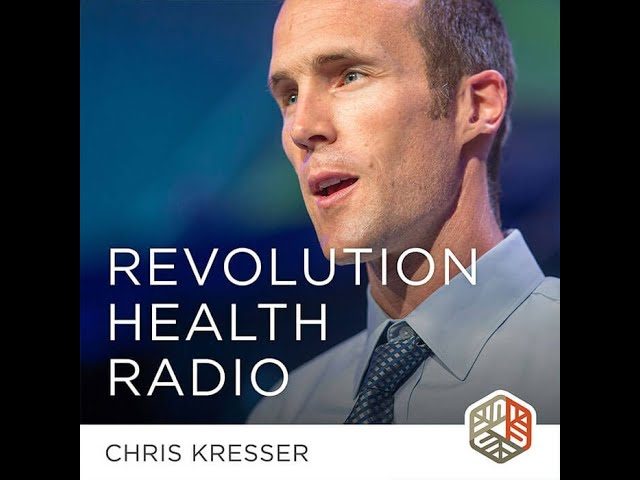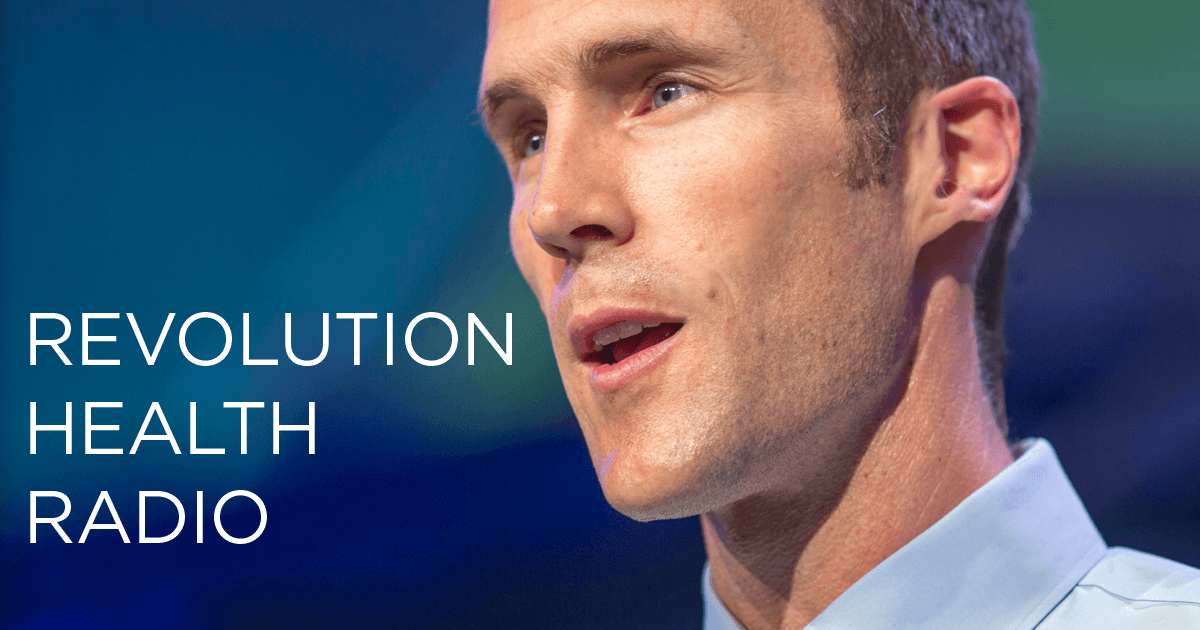
What Successful Health Coaches Need: The 5 Cs

So what’s it like to make a big decision, invest in yourself and the promise of a fulfilling career, and have all that pay off? As someone who changed careers and is now an ADAPT-Certified Functional Health Coach and running my own health coaching business, I can say that making the leap was worth it and that I’m grateful to have training that set me up to be a successful, practicing health coach.
In this article, I’ll share an inside look at what the ADAPT Health Coach Training Program program delivers to graduates. When I enrolled in the program, I was looking for a great education in Functional and ancestral health and world-class training in coaching. The program delivered in a big way in these areas, but it also went well beyond my expectations. Now, as a graduate and practicing coach, I want to share some of the big takeaways and valuable things that I got out of the program, things that make the program exceptional and unique in the industry.
What do successful health coaches have in common? The right skills and training. In this article, health coach Will Welch discusses the skills and traits needed to thrive in this profession. #changeagent #chriskresser
My Journey to Become a Successful Health Coach
Health coaching wasn’t on my radar when I was working in corporate HR and as an organizational development consultant in the early 2010s, but I found myself where you might be right now, wondering whether health coaching could be the right career move for me. As I was considering a career change and thinking about becoming a health coach, I compared numerous health coach training programs on many of the factors that you would expect:
- Price
- Program length
- Travel requirements
- Time commitment
- Faculty
- Curriculum
The program that jumped out to me most was the ADAPT Health Coach Training Program.
If you’re not already familiar with the basics of the ADAPT Health Coach Training Program, here is a brief introduction: It’s the only program that offers students training that combines education in Functional Health, ancestral health, core coaching techniques, and how to build and market your business. It also includes more practice and hands-on training from experienced mentor coaches than any other health coaching program.
Price, time, curriculum, faculty, etc., are all important factors to consider when choosing a health coaching program. I would highly recommend that you do your due diligence. This information is easy to search for on the internet for most coaching programs, but it doesn’t give you the full picture of what a health coach training program can provide you. It also doesn’t necessarily tell you what you’ll leave the program with in exchange for your time and the cost of enrollment.
The training that I and other ADAPT graduates have gotten in return for our time and money has set us up to truly be successful, practicing health coaches, and that’s the ultimate prize. As is often said about chronic illness, it’s not a problem of information but of transformation, and I think this is true of coaches, too. It’s not enough to read about and watch videos on coaching techniques, the Functional approach, and ancestral health. Rather, we have to transform ourselves to be great coaches. The ADAPT Health Coach Training Program transforms its students into coaches.
From my experience and that of the many graduates that I’ve spoken with, five big things stand out that you can expect to get in return for the time and money that you invest in becoming an ADAPT-Certified Functional Health Coach. (It’s no coincidence that these are also keys to becoming a successful coach.) You get confidence, connections, certification, a career, and transformation into an agent of change. I call these the five Cs of the ADAPT Health Coach Training Program.
The ADAPT Health Coach Training Program offers course content on everything you need to become a successful health coach. Our virtual course is centered around teaching you the skills you need to work as a health coach, including:
- Core coaching skills
- Motivational interviewing
- Positive psychology
- The stages of change
- Mindfulness
- Character strengths
- And much more
The ADAPT Health Coach Training Program also offers robust and evidence-based instruction in Functional Health, teaching you how and why diet and lifestyle changes can prevent or reverse chronic disease. We also teach you how to build your business and manage your career while showing you how best to collaborate with a community of fellow health coaches and Functional Medicine practitioners. Click here to find out more about how the ADAPT Health Coach Training Program can help you build a future as a successful health coach.
1. Successful Health Coaches Need Confidence
Gaining confidence as a coach is one of the first hurdles that many coaches-in-training have to clear, and I was no exception. From the very first peer coaching session to working with practice clients and launching my business, confidence was something that I had to build through practice.
What you learn through course video modules and readings provides you with a great foundation for understanding your clients and the competencies required to coach well, but your ability to coach well is incomplete without confidence. Likewise, making the leap to start a coaching business, take the next step in an existing one, or change careers requires considerable confidence.
I picked up confidence in the program over time and in a variety of ways. It’s important to note that it takes time to build confidence as a coach: to stretch yourself, learn new skills, try them out, struggle with them, and then use them successfully. The ADAPT coaching program is 12 months long, in part because this process of building confidence requires time. It takes a lot of learning and practice … followed by more learning and more practice. Being confident as a coach is not just confidence in your knowledge but also confidence that you can bring clarity and awareness to your clients and facilitate change in their health behaviors no matter where they are. I found that 12 months provided me with the room to grow into this confidence, and the program provided me with training to solidify it.
Having confidence in your coaching is critical, but are you confident in your ability to run a successful coaching business? My experience as a student is that the Kresser Institute doesn’t just want you to be educated in coaching, they want you to be a successful practicing, professional coach. This means that you’re confident in your ability to succeed as a coaching business owner or full-time employed coach.
The program’s professional development track outlines various ways that coaches can work and explains how to operate effectively within each of these models. This track provided practical information on how to market myself, what tools are available to me as a business owner, and how to protect myself professionally. In addition to this practical education, the professional development track pushed me to dive deep and tap into my values and purpose. Getting clear on these was then the platform for figuring out the clients that I want to work with and how I want to work with them.
When you finally start putting these pieces—your coaching skills, purpose, and business tools—together you have a powerful foundation for confidence and a springboard for success after graduation.
2. You Need Professional Connections
None of us can go it alone, whether it’s doing training behind a computer in a virtual coaching program or owning our own coaching business. We have to be connected to reach our full potential. In the ADAPT coaching program, I was surrounded with support from day one and expertly guided through the various stages of learning to be a coach. As a graduate, I am also part of an ecosystem of ADAPT coaches and practitioners aimed at transforming conventional medicine.
Through connections with faculty, the student support team, my peer partner (who remains a friend and colleague), and my other classmates, support came in many different forms. Whatever my question, whether it was about the curriculum, time management, working with clients, or business forms, faculty and fellow students always had thoughtful and helpful answers at the ready.
As ADAPT students and graduates, we are also part of a larger ecosystem of ADAPT practitioners and coaches. Coaches are an important part of the health improvement process, and many practitioners are looking to partner with a coach. Sharing the ADAPT experience and having similar training provides a common foundation for ADAPT practitioners and coaches who want to work together. I have made some great connections with ADAPT practitioners, and we are developing ways to help our patients and clients improve their health. All of our practitioner graduates and certified coaches are listed in our practitioner and coach directories.
3. Health Coaches Need Career Guidance
For those of you who are considering a career change like I was, it can be a daunting prospect to go from a stable job to coaching. I was starting from scratch as a coach, and I found that the ADAPT coaching program provided all of the tools to help me develop into a professional coach with the ability to turn health coaching into a career.
Through the professional development curriculum and the practice portion of the program, you get the education and practice time that sets you up to build a business as a coach and turn health coaching into a career. Creating a career as a coach requires that you select and understand a client audience and client pipelines, find your style as a coach in addition to your honing technique, and generate the income that makes coaching a sustainable job for you.
The program walks you through different ways to create a coaching career and asks you to dive deep into yourself to find your coaching purpose, mission, vision, and niche. To turn coaching into a career, it’s not enough to just want to help people and have a passion for health and wellness. You’ve got to have knowledge of the market that you’re working in, the audience that you want to reach, and the business tools to book clients, take payments, and market yourself. You also need to be fulfilled by the work and learn self-care to ensure that coaching is a sustainable career choice for you. All of these aspects of a coaching career are covered in the ADAPT Health Coach Training Program.
Free Ebook
Health coaching isn’t just a career—it’s a calling. Download this eBook to find out more about the job opportunities that are out there for health coaches.
I hate spam too. Your email is safe with me. By signing up, you agree to our privacy policy.
4. You Need the Ability to Pursue Certification
It’s really gratifying to be able to call myself an ADAPT-Certified Functional Health Coach (A-CFHC). Getting this certification is what we, as students, are striving for from day one of the program, and we put in a lot of work to get there.
As a student, it’s not enough to learn about coaching concepts to become certified—you have to practice and demonstrate that you can actually coach. When you’ve successfully demonstrated your coaching skills and met all of the other requirements of the program, you get to call yourself an A-CFHC. This certification signals to others in the Functional Medicine community that you have training in a respected framework for understanding and improving health. Both the ADAPT and Kresser names are recognized as leaders in the field and Kresser Institute is known for a thoughtful, evidence-based approach to Functional Medicine and coaching training. Your certification also signals your competence and training to clients and practitioners and that you have graduated from a rigorous, professional coaching program based on the latest science and learning methods.
The ADAPT Health Coach Training Program is also one of a small number of programs approved by the National Board for Health & Wellness Coaching, the organization that sets the standards for health and wellness coaches. The A-CFHC certification enables you to sit for the national board exam and become a National Board Certified Health & Wellness Coach, the top certification achievable in the health coaching field, adding additional credibility to you and your business.
5. Successful Health Coaches Are Agents of Change
Health coaching is all about behavior change. As a health coach, that makes me an agent of change, positioned to affect the trajectory of chronic illness in this country and for my clients.
As an industry, we need skilled, actively practicing coaches to accomplish this goal. It’s not enough to just learn about coaching, and this is why Kresser Institute is dedicated to training and empowering students to help clients truly transform their health. If we as students and graduates of the ADAPT coaching program aren’t set up to impact the lives of our clients and tackle the epidemic of chronic disease by the end of the program, then we can’t be successful in our role as coaches and fulfill the larger mission of tackling chronic illness in this country.
In a practical sense, you need solid techniques to be an agent of change. Through training in various coaching tools and frameworks, I learned the skills to help clients define their goals, take steps toward those goals, and build new habits along the way. Learning techniques like motivational interviewing, positive psychology, assessing readiness for change, and understanding clients’ feelings and needs provided me with the tools to be an effective coach, and they were the platform for many of the other 5 Cs, especially confidence.
What’s Next?
What’s next for me? I am building my coaching practice and am finding it more exciting than daunting. I’ve never created a business from scratch, but I am confident in the skills that I learned in the ADAPT coaching program and my ability to help people improve their health. This confidence, these skills, and the connections that I’ve made in the program set me up for a successful coaching career for decades to come.
If this sounds like something you want, too, consider enrolling in the ADAPT Health Coach Training Program. I’d love to have you join me as a fellow coach and alumnus.
Find out more about becoming a health coach in the ADAPT Health Coach Training Program.






